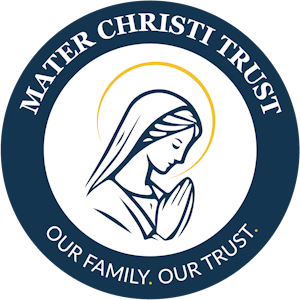History
INTENT
At St. Cuthbert’s Primary School, we are HISTORIANS!
Through our History curriculum, we aim to ignite every child’s curiosity about the past and develop their understanding of how it has shaped the world they live in today. We teach children a strong sense of chronology so that they can build their own historical identity and appreciate their cultural heritage. This allows pupils to value their own culture and respect the diversity of others in modern, multicultural Britain.
Our curriculum introduces pupils to significant events, people, and places in British and world history, enabling them to appreciate continuity and change over time and understand how Britain has developed as a society. Children also explore local, British, and ancient history, connecting their knowledge of the past with a broader global perspective.
We believe that children should experience the enjoyment of history through engaging lessons and meaningful opportunities to investigate the past. This inspires them to become curious, reflective, and analytical learners who are able to make sense of the present and the future.
Our curriculum develops:
- Substantive knowledge – core facts, vocabulary, and concepts about the past. Misconceptions are explicitly addressed, helping pupils secure accurate historical understanding.
- Disciplinary knowledge – the ability to ‘work historically’ by asking questions, analysing evidence, and constructing historical arguments and accounts. Children develop their understanding of significance, evidence, continuity and change, cause and consequence, perspective, and interpretation.
‘A people without the knowledge of their past history, origin and culture is like a tree without roots’
Marcus Garvey
IMPLEMENTATION
CUSP History is built around the principles of cumulative knowledge The effect of this cumulative model supports opportunities for children to associate and connect with significant periods of time, people, places and events.
Key Stage 1
Changes within living memory – building children’s sense of time by connecting to their own lives.
Significant individuals – introducing concepts like legacy and exploring the context of their lives.
Local history – significant events, people, and places in our area.
Events beyond living memory – developing early chronological understanding through well-known historical events.
Lower Key Stage 2
Prehistory – Stone Age to Iron Age, exploring creativity, innovation, and survival in early Britain.
Roman Britain – the Roman invasion and its impact on British life.
Anglo-Saxons and Scots – cultural change, Christianity, and the Heptarchy.
Vikings – invasions, settlements, and the Danelaw.
Upper Key Stage 2
Revisiting and connecting Anglo-Saxon knowledge with Maya civilisation, comparing cultural and technological developments around c.AD 900.
Significant monarchs after 1066 – five depth studies exploring leadership, beliefs, and legacy.
Ancient Egypt and Ancient Greece – exploring culture, innovation, and their influence on the modern world, linked to concurrent events in Britain.
Modern history – the Second World War and Battle of Britain, Windrush Generation, and post-war migration, exploring themes of conflict, resilience, and social change.
How do pupils learn
History is taught in blocks using a spaced retrieval model, allowing children to revisit and strengthen prior knowledge over time. Lessons follow a consistent structure:

To support learning:
- Dual-coded knowledge organisers provide core knowledge for reference and retrieval practice.
- Knowledge notes reduce cognitive load by focusing on the key question of each lesson.
- Retrieval practice is systematically planned through spaced learning and interleaving.
- Vocabulary modules explicitly teach Tier 2 and Tier 3 words, including etymology and idioms, to deepen understanding.
- We create a high-challenge, low-threat learning culture, ensuring that every pupil can achieve through appropriate scaffolding and support.


IMPACT
Our curriculum is designed to ensure that all pupils make outstanding progress relative to their starting points, leaving Year 6 with secure knowledge, chronological understanding, and the ability to think critically about the past.
How we assess learning
- Questioning
- Pupil Book Study talking about learning with the children
- Talking to teachers
- Low stakes ‘Drop-in’ observations
- Quizzing and retrieval practice
- Feedback and marking
- Progress in book matches the curriculum intent


 History Long Term Plan
History Long Term Plan